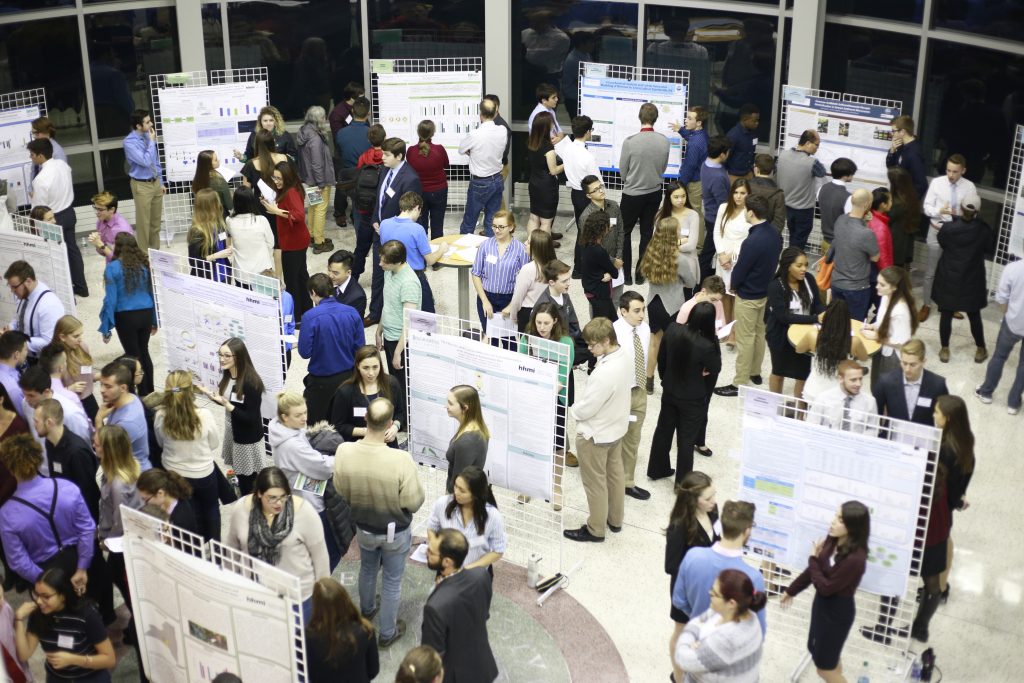
University research is often reserved for upperclassmen, but Binghamton University freshmen and sophomores presented on projects ranging from Lyme disease to land mines on Wednesday night.
Researchers presented their findings at the Freshman Research Immersion (FRI) Poster Session in the rotunda of the Innovative Technology Complex’s Biotechology Building, with a focus on disease, clean energy and public health.
Students touched on both local and global issues through presentations. To prepare, freshmen worked on research within one of nine distinct research streams for three semesters, including biomedical chemistry and community and global public health. FRI is a three-semester commitment and incoming freshmen apply to research a topic in the STEM field. The first class was accepted in fall 2014.
Megan Fegley, assistant director of the program, said hands-on research allows students to have experiences similar to what they would get in a professional lab.
“In many of their intro classes, they are really not comparable to what being a scientist really means, so this really gives them a real-life experience,” Fegley said.
Students broadened their research through working with professional research teams, such as the Lyme disease Research Team at BU. Alyanna Gallo, a sophomore majoring in anthropology, worked with researchers to obtain samples of local mice and ticks and test the frequency of the disease in the upper Susquehanna River Basin. The group found a high prevalence of Lyme disease in the region.
“Lyme disease transmission should be regulated by increasing public awareness on how Lyme disease is transmitted,” Gallo said. “Due to an increase of trash [on campus] there’s more mice, which can cause more ticks and Lyme disease in the region.”
Several groups examined issues affecting those around the globe, including the threat of PFM-1 land mines in countries like Afghanistan and Syria. According to Daniel Finan, a sophomore majoring in integrative neuroscience, these land mines are harder to detect because they’re made of plastic. Finan and his peers researched ways to get around this, specifically through thermal infrared sensors, a way of observing the difference in temperature of the mines relative to the ground.
To test their research, the group camped at Chenango Valley State Park and placed model land mines around the area, recording their temperatures throughout the night with an infrared sensor attached to a drone. Finan said the group plans to continue its research after it is finished with FRI.
“We are hoping to apply this in a larger scale,” Finan said. “To remove these mines where they are taking the lives of many people, many children, everyday.”
Caitlin Light, a research educator and research assistant professor for the biofilms research stream, said the skills students learn during programs like this are invaluable to young STEM majors.
“So many professional skills: teamwork, leadership, perseverance, communication, writing, speaking,” Light said. “And on top of that, they learn these research skills.”
According to Timothy de Smet, a research educator and research assistant professor for the geospatial remote sensing research stream, the skills fostered are also useful outside the lab.
“Research in general actually is a way of thinking, so if you learn how to research something, it’s an applicable skill that’s transferable to anything in your life,” de Smet said.


